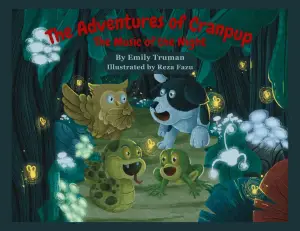I recently finished reading What Happened to You? by Oprah Winfrey and Dr. Bruce D. Perry, and I must say, it was a transformative experience. As someone who has always been interested in psychology and personal development, I was drawn to this book’s promise of shifting perspectives on trauma. The concept of moving from "What’s wrong with you?" to "What happened to you?" resonated deeply with me, especially in today’s world where understanding mental health is crucial.
The narrative structure of this book is engaging, as it combines personal anecdotes from Oprah with expert insights from Dr. Perry on the brain’s response to trauma. I found their conversations to be not only enlightening but also deeply relatable. The emotional content is comforting; it offers a safe space to reflect on past experiences. I appreciated how Dr. Perry’s stories and insights cleared up some of my confusion regarding behaviors I’ve witnessed in myself and others—especially those stemming from childhood traumas. Like one reviewer noted, this book felt like a "game-changer"; it empowered me with new insights and tools to navigate my own emotional landscape.
However, it’s important to note that this book does have its drawbacks. Some readers found parts of it to be a bit dry. I can relate to that sentiment; while the scientific explanations are necessary, they occasionally felt dense and might lose the attention of casual readers. Additionally, though the book provides helpful insights, at times it seemed to skirt around the deeper complexities of trauma, making it feel a touch oversimplified. Hillary’s review summed it up well, stating that while it’s informative, parts of it read as dry—especially for those unfamiliar with psychological concepts.
Despite these drawbacks, I found that the overall emotional depth outweighed these minor complaints. The collective power of the stories shared within its pages reminded me of the importance of nurturing our inner selves and recognizing how our past experiences shape our present behaviors. One standout aspect of the book is its focus on resilience. Many reviews echoed thoughts of how it helped readers acknowledge their struggles while offering guidance toward healing and understanding.
The authors do an admirable job driving home the message that what happened to us in childhood can shape who we are today. Oprah’s sharing of her own vulnerabilities added layers to the narrative, making it clear that even someone as celebrated as her has faced significant challenges. This honesty creates a sense of relatability and connection that is hard to find in mainstream psychological literature.
Ultimately, I wholeheartedly recommend What Happened to You? to anyone interested in trauma, healing, or understanding human behavior. Whether you are a survivor of trauma or simply someone looking to foster empathy for others, this book is a worthwhile investment of your time. It offers vital insights, practical strategies, and a new lens for viewing life’s challenges. It’s not just about healing trauma; it’s about reshaping your narrative and opening doors to resilience and personal growth.
In conclusion, while the book does have minor shortcomings, they do little to detract from the overall value of the reading experience. For anyone looking to bring a renewed perspective to their lives, this book might just be the key to understanding how past experiences have shaped who you are today. Just remember, healing is a journey—not a destination.








